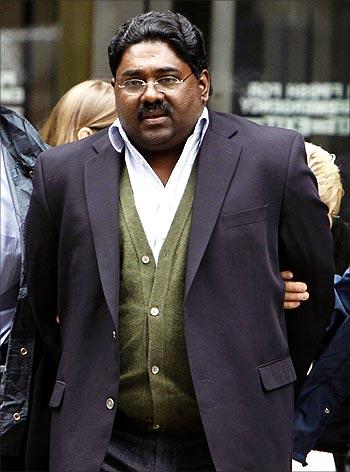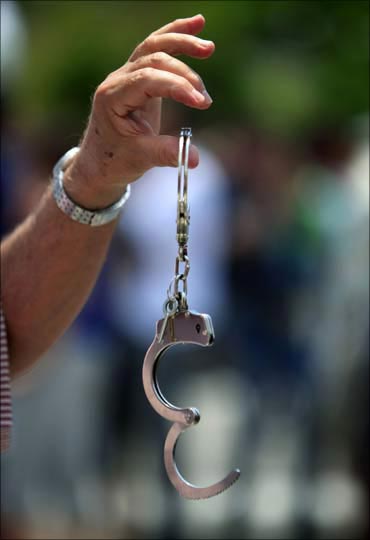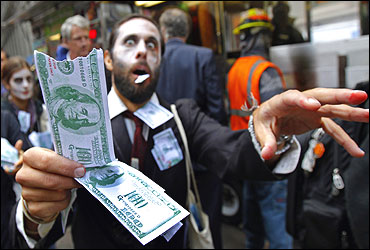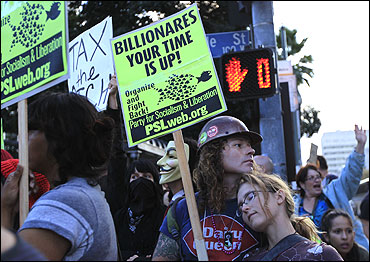
He might have presided over assets worth billions of dollars, but the Sri Lankan-born Galleon Group chief Raj Rajaratnam will have to work for 12 to 17 cents an hour cleaning the kitchen or the toilet in prison.
"That is how the prison system works," Larry Levine, founder of Wall Street Prison Consultants, told Rediff.com.
Levine has been widely quoted in the national media in connection with the sentencing of Rajaratnam.
. . .

Judge Richard Holwell recommended that because of his poor health as argued by the defense, Rajaratnam be sent to a prison in Butner, North Carolina.
Butner is among five federal prison medical centers in the United States where convicts with actual or alleged medical problems are sent.
The others include FMC Kentucky, FMC Rochester Minnesota, Springfield, Missouri, and one in Texas.
. . .

Levine said it where Rajaratnam is finally sent won't make a difference.
"The medical center in Butner has people at all custody levels from minimum security to high security and since they said Rajaratnam has kidney problems, they are going to monitor him," Levine explained.
"So probably they will send him there, but he could also be sent to Lexington Kentucky, and other four federal prison medical centers in the US. Irrespective of whether one is a white-collar employee or not, people in prisons are treated with humiliation. If you get arrogant with fellow inmates -- who might include murderers, rapists and others criminals -- they get pissed of with you and treat you like shit."
. . .

Someone sentenced for 10 to 20 years goes to a low security facility, which is a kind of a dormitory surrounded by two fences.
"Even low or medium security places are no joke," Levine said. "You look at somebody disrespectfully, you can be beaten up. They can beat the shit out of you and can stick a knife at you. It happens all the time in prisons."
Correctional officers, Levine said, have an attitude. "Their job is to make sure that an inmate is securely in their custody. Although Rajaratnam is a rich man and is powerful, once he is in the custody of prison officials, people will not look reverentially at him," he said. "They think that he was a powerful guy but now we have power over him and they can treat him like shit."
. . .

Levine should know. He was arrested by a Federal Organized Crime Task Force for securities fraud, obstruction of justice, narcotics trafficking, and possession of automatic weapons.
He served a 10-year sentence in federal custody. After being deemed a threat to the community and denied bail, he spent 21 months inside the Federal Metropolitan Detention Center in Los Angeles, where he began assisting fellow inmates in their defense by reviewing prosecutorial discovery for inaccuracies, researching case law, indictments and plea agreements, and giving overall advise in criminal defense-related strategies. Levine had worked as a private investigator in Los Angeles and also for US military intelligence.
"I was with organized crime, an efficiency expert for organized crime before I went in," Levine explained.
. . .

"I would fine-tune things and was in a way a troubleshooter for crime. When I was locked up inside, my resources were limited. So I fell back to my role as a troubleshooter -- but instead of helping organized crime, I tried to work for the benefit of inmates as to how to manipulate the prison system to the point that I turned it into a business. After I came out I thought of turning my expertise into a business," he said.
"And that is how this company, Wall Street Prison Consultants, came to be founded," he added.